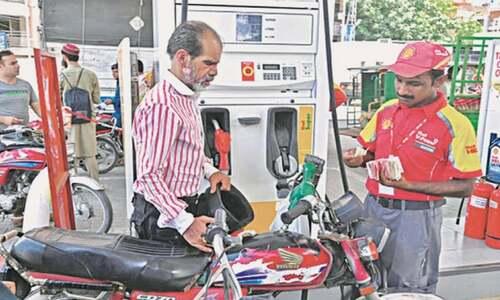The shooting of four gang-rape and murder suspects by Indian police has highlighted the scourge of extrajudicial killings in a nation grappling with high levels of sexual crimes and a notoriously slow judicial process.
Authorities claimed the four men were killed in a “shoot-out” during a re-enactment of the attack, carried out just under two weeks ago, in which a 27-year-old veterinarian was raped and murdered, before her body was burnt.
Police were feted with rose petals, and crowds took to the streets cheering the men's deaths, saying “swift justice” had been meted out.
“The law has done its duty,” local police chief VC Sajjanar told reporters.
These kind of deaths — dubbed “encounters” in South Asia — where police claim suspects were killed trying to resist arrest or while escaping from custody, are part of a well-worn script trotted out by authorities.
But human rights campaigners warned of a deepening culture of impunity as police take the law into their own hands.
“Over the decades extrajudicial killings and custodial torture have assumed legal sanctity in India,” leading Supreme Court lawyer and founder of the Human Rights Law Network, Colin Gonsalves, told AFP.
“It's worrying that criminality of the police is now getting public approval.”
After the killings, Chief Justice Sharad Arvind Bobde of the Supreme Court said he had concerns about the use of “instant” justice.
“Justice never ought to be instant. Justice must never ever take the form of revenge. I believe justice loses its character when it becomes revenge,” Bobde said at an event on Saturday.
'No mercy' tactics
The “staged shoot-outs” were for decades used to bypass India's cumbersome judicial processes when police battled armed separatist movements in West Bengal, Punjab, Kashmir and remote northeastern states.
More recently, the encounters have been deployed against those accused of violent crimes.
In India's film loving culture, “encounter specialist” police officers have been idolised by Bollywood.
Scores of movies depict them as tough men and glorify their “kills”, particularly relating to the deaths of hundreds of alleged gang members in Bollywood's capital Mumbai in the 1990s.
Rights activists say “encounters” are carried out as retribution by police, or used to cover up botched investigations, win awards and rewards, or to pacify a furious public.
According to a government report, 100 suspects were killed in police custody in 2017. None of the 33 policemen arrested for the killings was convicted, it said.
Campaigners say the number of those who actually die at the hands of the police is far higher, with many deaths categorised as suicide or from natural causes.
The Supreme Court attempted to clamp down on the killings in 2014, ordering mandatory probes and barring governments from rewarding officers before determining how and why the shootings occurred.
The court is currently monitoring probes into cases from northeastern Manipur state where rights groups allege that 1,530 suspects have been killed by police since 2007.
It is also hearing a petition on the “staged killings” of at least 58 suspects in Uttar Pradesh since 2017 after the state government adopted what it called “no mercy” tactics to battle crime.
Home Minister Amit Shah has said his government would not tolerate police atrocities. He himself was cleared of charges relating to the 2005 extrajudicial killing of a gangster and his wife when he was Gujarat state's home minister.
Slow or no justice
Police have long been criticised for not preventing violent crimes or for failing to bring cases, particularly sexual assaults, to the courts.
The justice system is also cumbersome and slow, with some rape and murder cases taking years or even decades to reach their conclusion.
India has a backlog of some 30 million cases, of which nearly 150,000 relate to sexual assault.
The conviction rate for rape stands at 32 per cent, and victims also have to endure bungled police investigations and threats by perpetrators.
Analysts say the lack of justice for victims has fuelled public acceptance of extrajudicial executions.
Activist Mihir Desai said rape cases have become symbolic of the rot in the criminal justice system, where constitutional rights of both victims and offenders are violated.
“This somehow reflects the justice delivery system and how the state is failing its citizens,” said Desai, whose rights group the People's Union for Civil Liberties has mounted several court cases against arbitrary police killings.
“The young woman didn't get justice and the slain men won't get it too.“













































